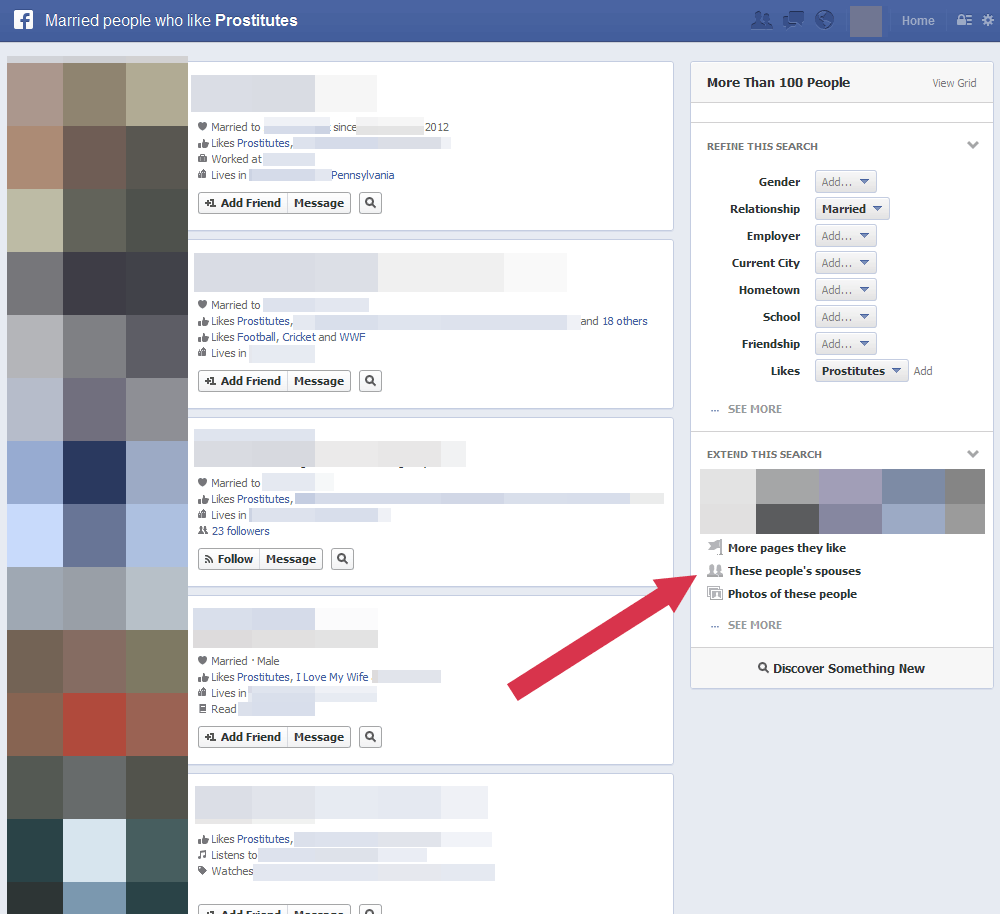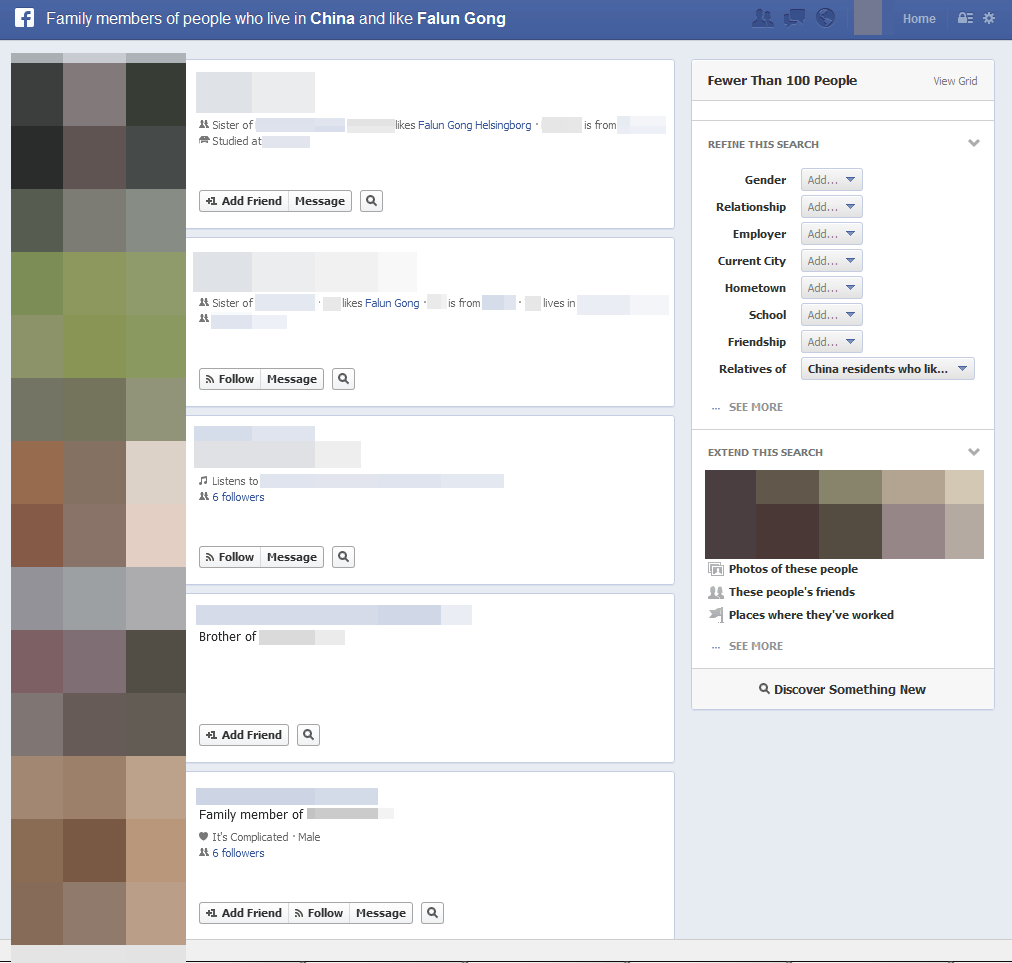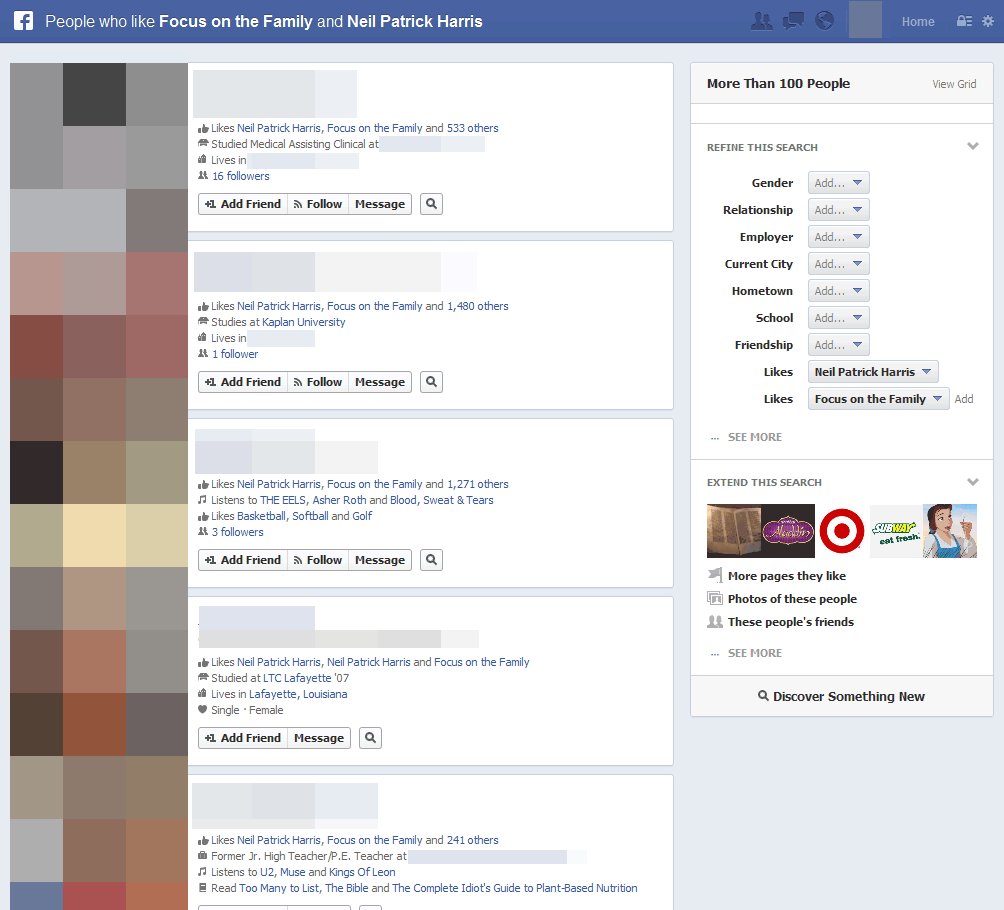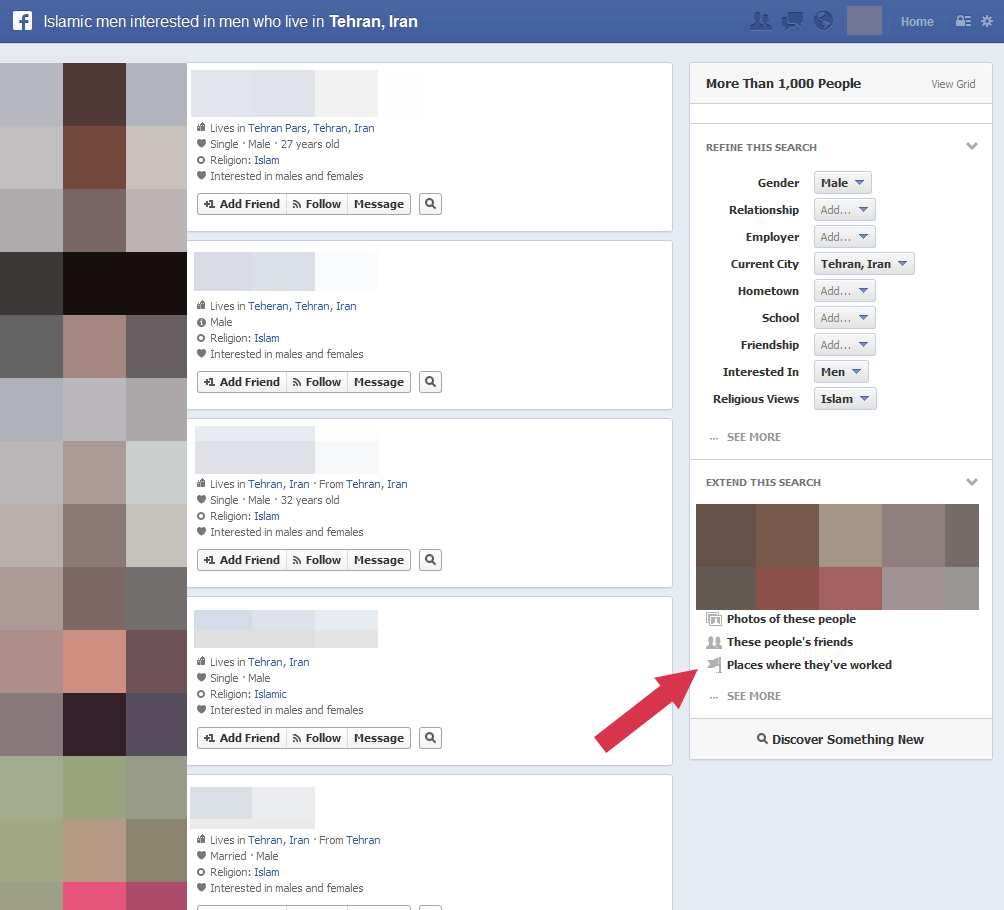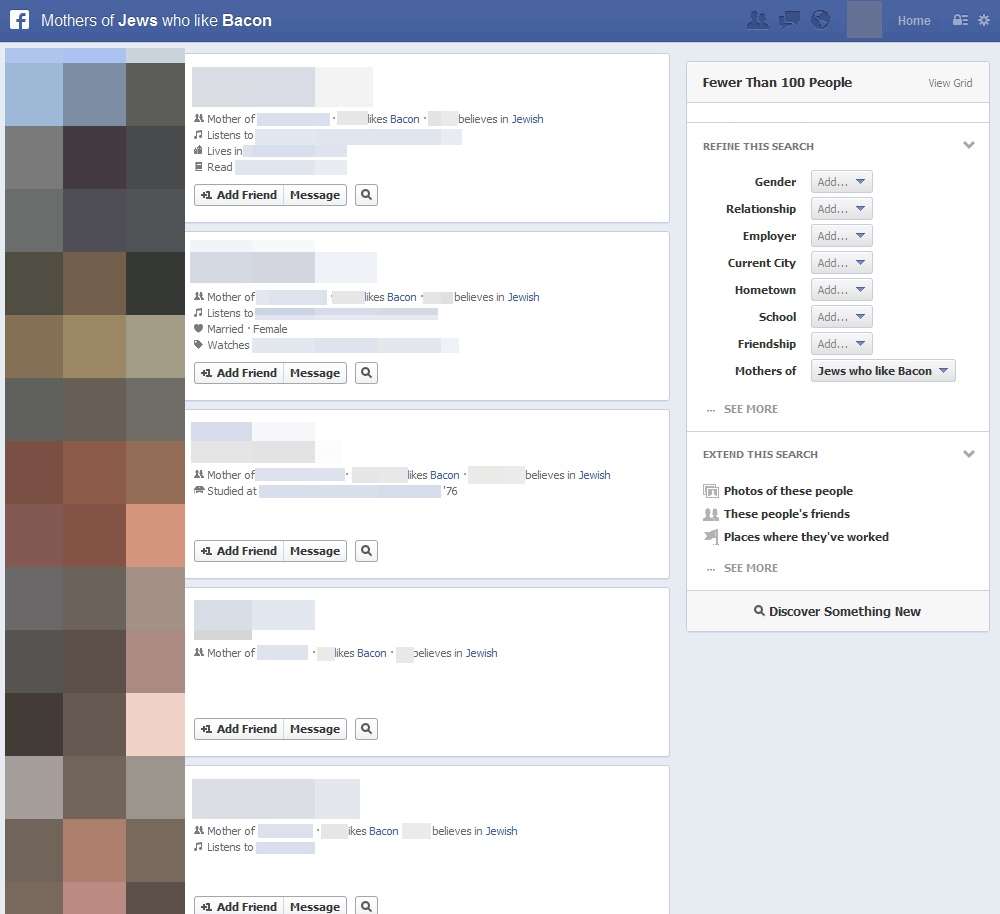
You’ve probably heard about Facebook’s new graph search feature. Like so many other Facebook innovations, the tool has the potential to be a privacy disaster. What does it do?
Basically the graph search allows users to search for specific traits among Facebook users. Want to find people who live in Brooklyn, and “like” homebrew and pot smoking? Facebook graph search is going to help you plan that party. Want to know who works for the US military and “likes” Racism? You can see that, too. The feature allows you to data mine others’ Facebook information, as long as that data is viewable by you in the ever more complex matrix of privacy settings available to site users.
So what about privacy and the graph search? Unsurprisingly, the company says it’s all good, that you can set your graph search settings to prevent embarrassing revelations. You don’t really want the entire world to know that you “like” both the xenophobic “English Defence League” and Curry, right? If your EDL buddies knew that you like to eat food from the subcontinent they might start to question the sincerity of your anti-immigrant credentials.
Fast Company points out the obvious “dilemma” Facebook faces with its new product — a dilemma that actually applies to the entire website: the “tool will either have to remain private, resulting in limited, biased content, or make private data accessible to search.”
In other words, if users choose to make their graph search data private, the tool won’t be very useful to people. If users choose to make their graph search data public, they risk being very, very sorry that they did so.
In the fine tradition of the Internet never disappointing, someone has already created a Tumblr page illustrating just what can happen when people choose to keep their graph search data public. Some examples of searches that could potentially help people lose their jobs, get divorces, or even get locked up by an authoritarian government include the following greatest hits. (Click on the images to enlarge them.)
Married People who “Like” Prostitutes
Spouses of Married People who “Like” Ashley Madison (a website that allegedly helps men have discrete affairs)
Family Members of People who Live in China and “Like” Falun Gong (a Chinese dissident group)
People Who “Like” Focus on the Family and Neil Patrick Harris (the former, an anti-gay marriage organization; the latter, a gay actor who is married and having kids)
Islamic Men Interested in Men who live in Tehran, Iran
As usual, good web samaritans have put together a complicated set of instructions for how to protect your privacy from this new Facebook feature. If you are still one of the site’s 800 million active users and want to follow those labyrinthine instructions, click here.
UPDATE: For more on Facebook's privacy woes, listen to a youth journalist talk about sexual shaming on Facebook, and the company's apparent refusal to take down pictures of young people in compromising positions.

